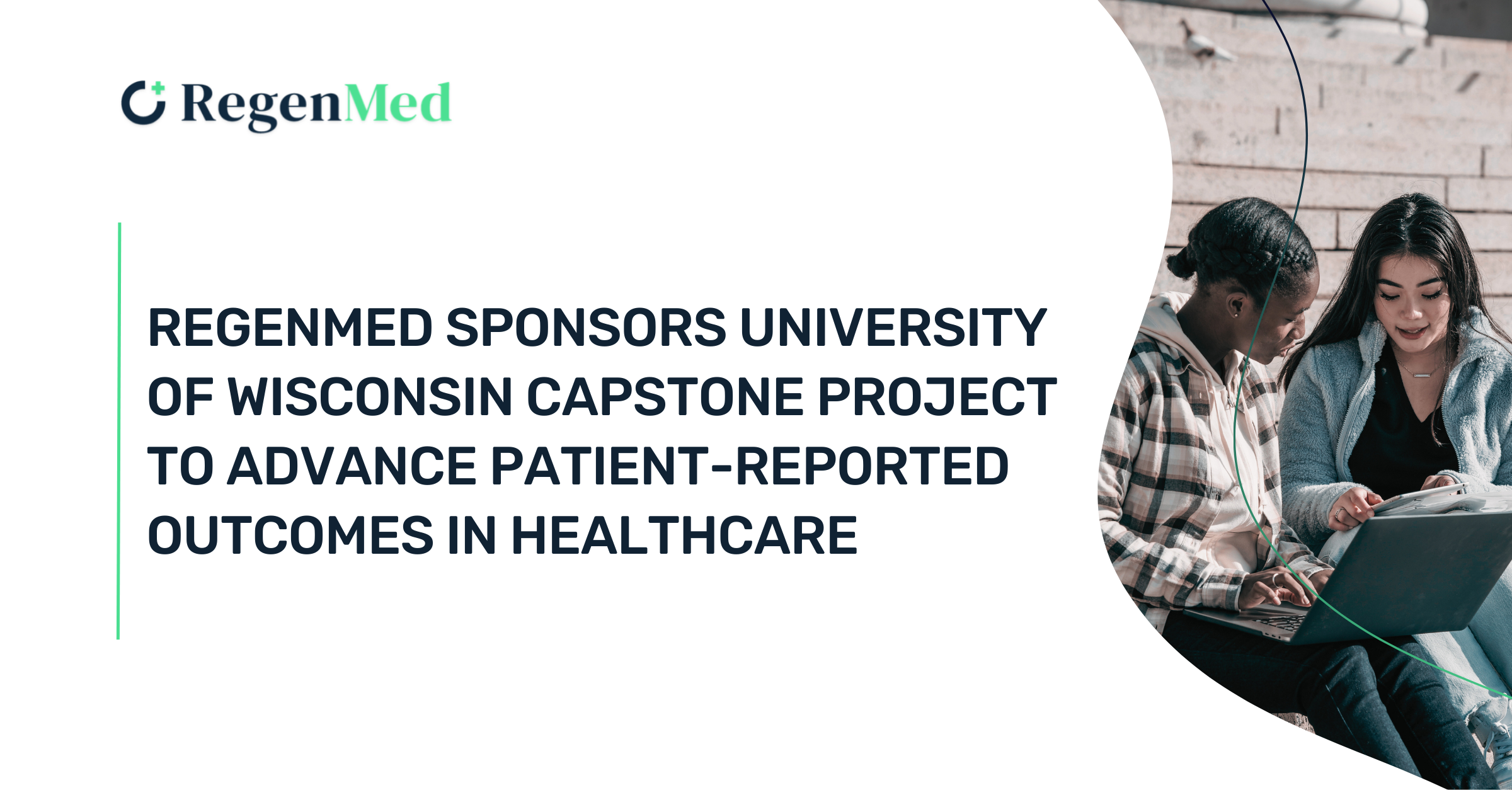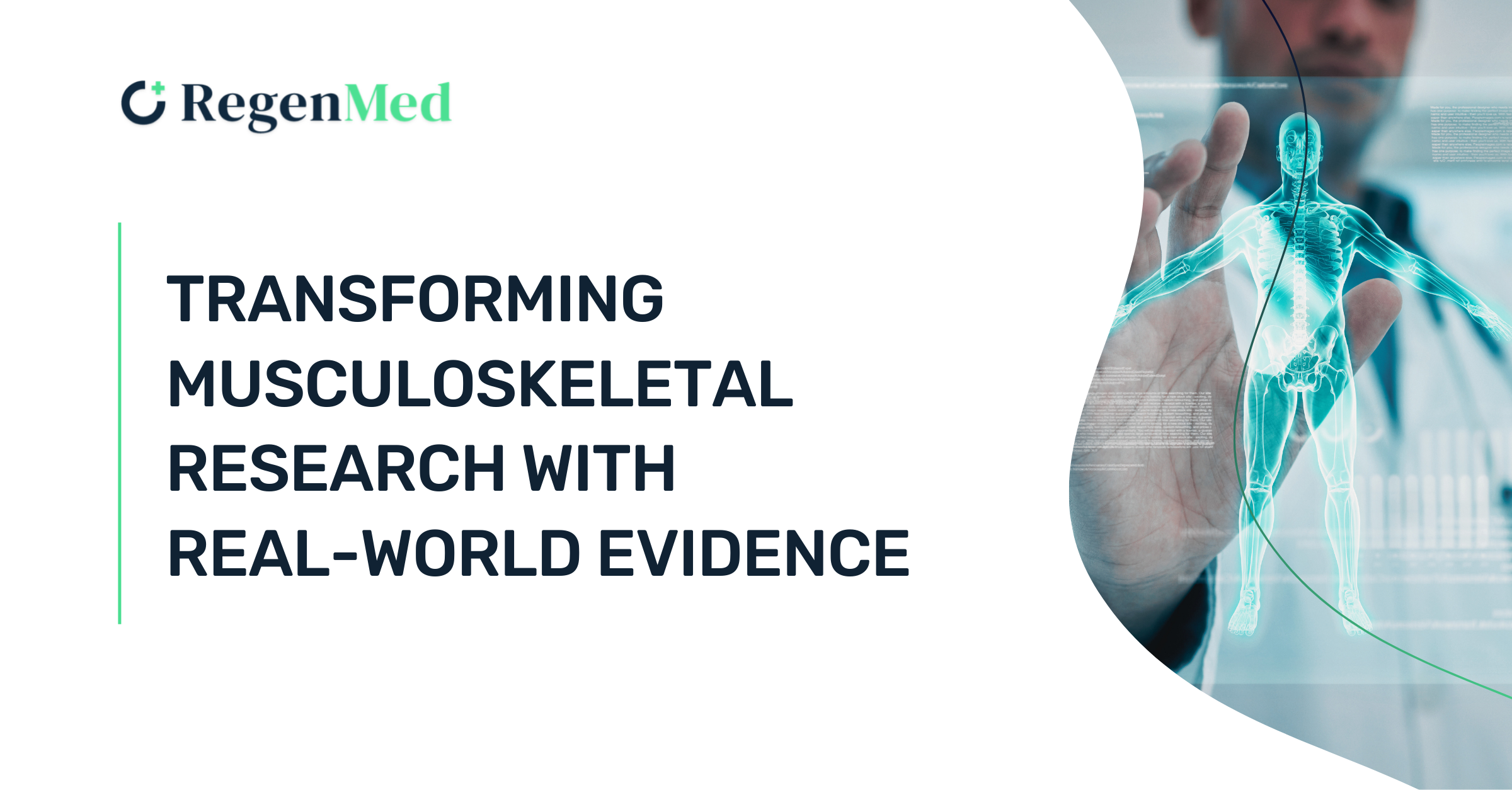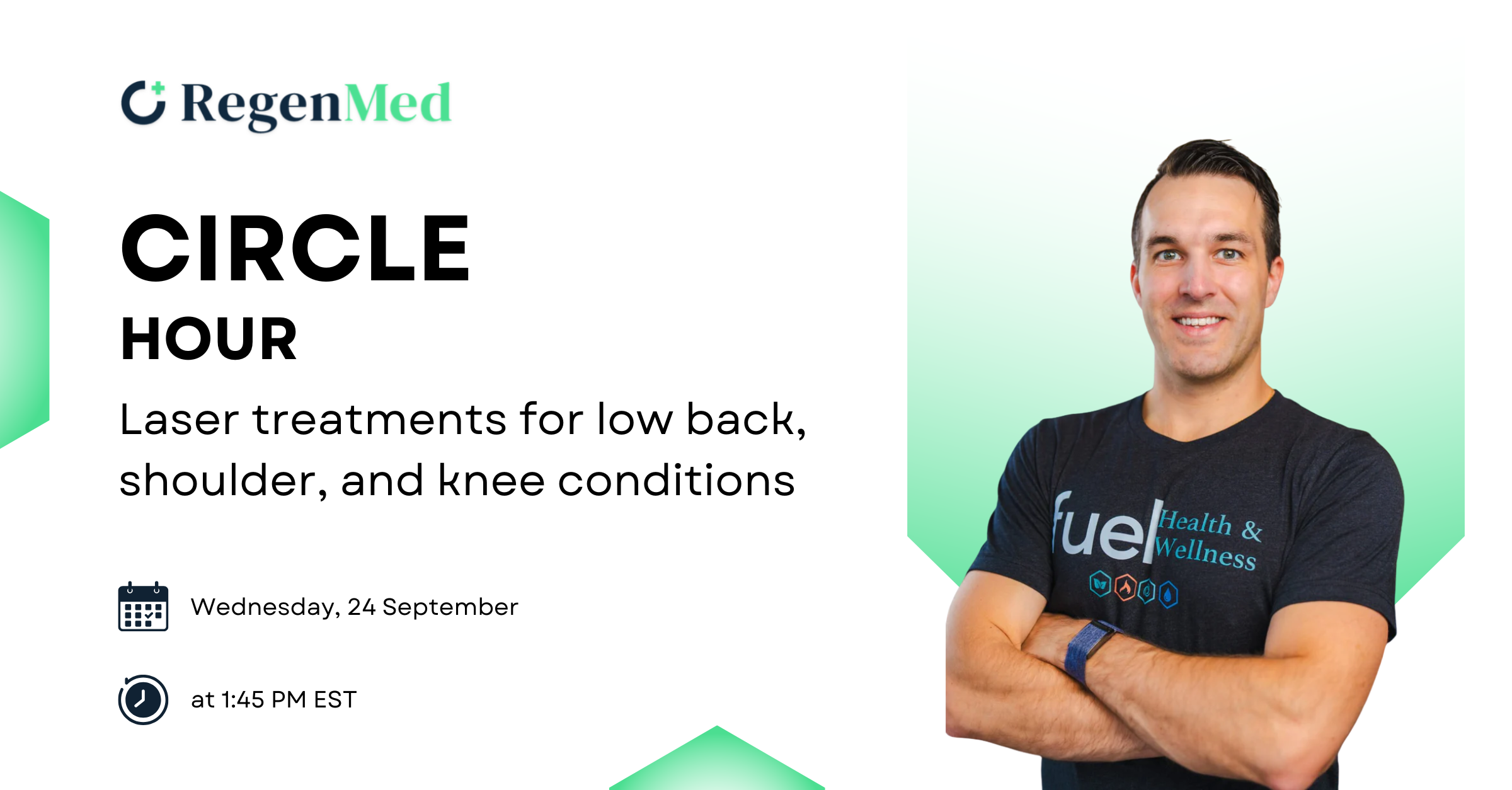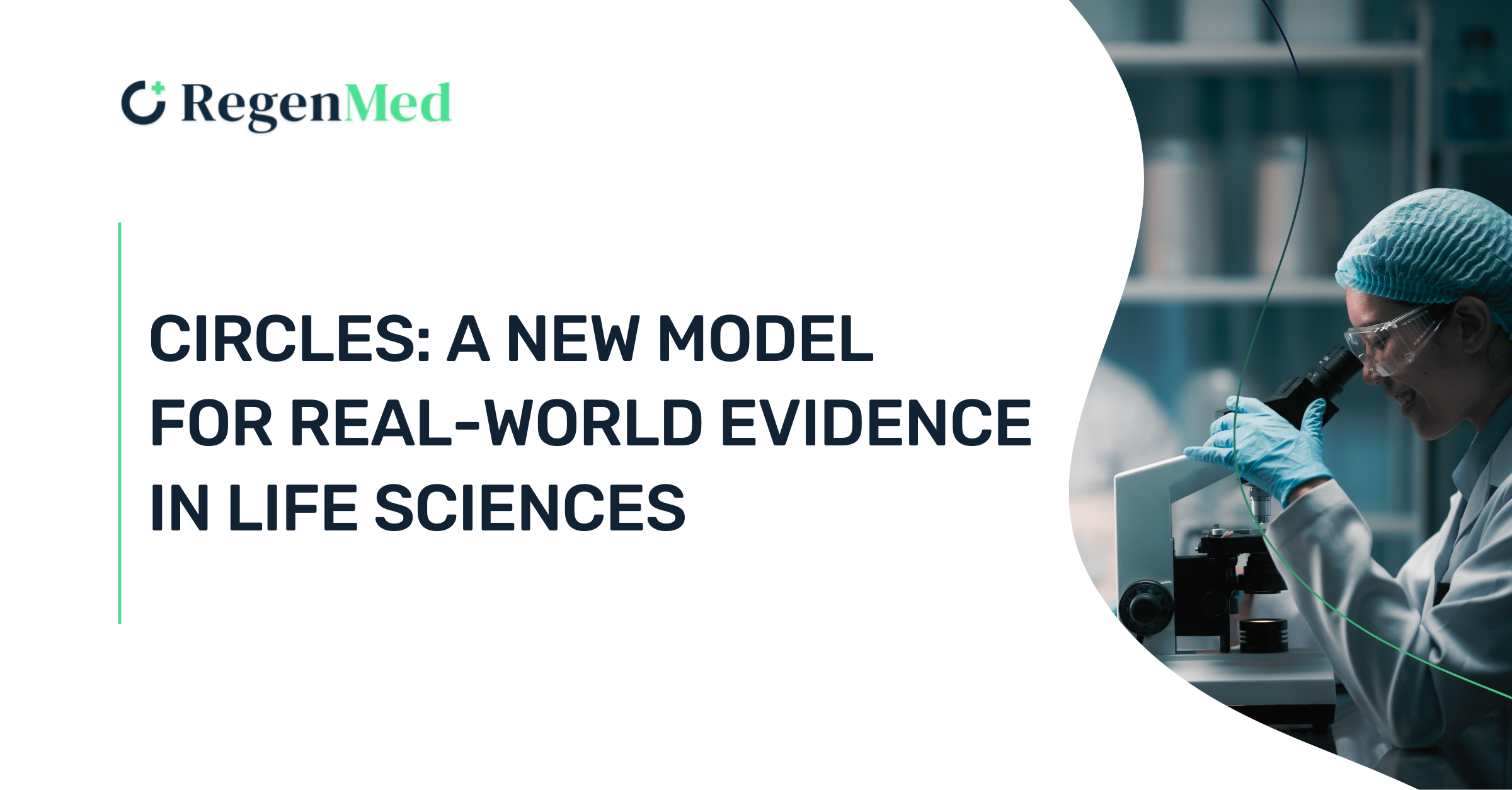Circles: A New Model for Real-World Evidence in Life Sciences
Big data RWE is convenient but flawed: stale, incomplete, and legally risky. RegenMed Circles provide a better way — clinically relevant, auditable, and continuously growing datasets that power HEOR, medical affairs, regulatory submissions, and AI.
Life sciences companies spend vast sums on real-world evidence, often relying on massive secondary datasets sold by big data aggregators. While these resources are convenient, familiar, and easy to license, they were never designed to address the nuanced questions that matter most to regulators, payers, and clinicians. The industry now faces an inflection point: the need for high-quality, longitudinal, verifiable evidence that is both strategically relevant and future-proof.The Problem With Big Data RWETraditional big data RWE draws primarily from electronic medical records (EMRs) and insurance claims. These datasets capture billing events and limited treatment codes, but they lack longitudinal outcomes, omit critical variables, and often arrive stale. Many areas of great importance — rare diseases, advanced therapies, and complementary interventions — are invisible in these datasets. Moreover, questions of ownership and legality loom large, with mounting costs and growing scrutiny around unauthorized data use. For artificial intelligence (AI) applications, which increasingly shape pharma’s strategy, these foundations are fragile and risky.Circles: A Better Way ForwardRegenMed’s Circles represent a new paradigm. Built on rigorously defined Observational Protocols (OPs), analogous to randomized controlled trial protocols, Circles generate datasets that are:Clinically Relevant: Tailored to specific therapeutic questions and aligned with HEOR, medical affairs, and regulatory needs. Verifiable and Auditable: Every data point is timestamped, source-verified, and traceable. Federated and Equitable: Data remains under local ownership, ensuring broader participation and inclusion of underrepresented populations. Living and Continuously Growing: Unlike static datasets that depreciate, Circles appreciate over time as new cases and longitudinal outcomes are added. AI-Ready: Standardized and proprietary, Circles provide a defensible foundation for training machine learning models without legal ambiguity. Benefits Across The Life CycleCircles provide critical advantages across the product lifecycle: Health Economics and Outcomes Research (HEOR): Strengthened cost-effectiveness models and payer negotiations through longitudinal, auditable outcomes data. Medical Affairs: Enhanced engagement with KOLs, support for outcomes-based contracts, and scientifically credible evidence generation. Post-Market Surveillance: High-quality longitudinal monitoring suitable for regulatory submissions and compliance with safety commitments. Rare Disease Research: Aggregation of small patient cohorts across institutions into statistically meaningful studies. Innovation Enablement: High-quality training datasets for AI, validation for digital health tools, and fuel for translational research. Future Proofing: Alignment with evolving regulatory standards, payer expectations, and AI-driven healthcare ecosystems. Comparative AdvantageWhile big data RWE will not vanish, Circles decisively outperform it in areas where big data structurally fails: rare diseases, post-market safety, outcomes-based reimbursement, and AI model training. Circles datasets are fresher, more complete, and strategically aligned with regulatory and payer needs. Unlike static licensed datasets, they grow in value, establishing a sustainable evidence ecosystem.Practical ImplementationCircles are not disruptive to adopt. They fit into existing budget categories (post-marketing, Phase IV, HEOR, rare disease) and can typically be launched in 4–6 weeks at costs lower than a single-year dataset license. Federated architecture ensures compliance and scalability across geographies, while AI-assisted coding workflows streamline data harmonization.ConclusionThe limitations of big data RWE are becoming more apparent as healthcare shifts toward value-based care, AI-driven analytics, and patient-centered outcomes. Circles are not merely a tactical supplement but a strategic imperative. By delivering clinically relevant, auditable, and continuously growing datasets, they provide life sciences companies with a credible, cost-efficient, and future-proof foundation for evidence generation. Early adopters will not only reap immediate advantages but also lead the industry into the next era of real-world evidence.Contact us to learn more.
See more







